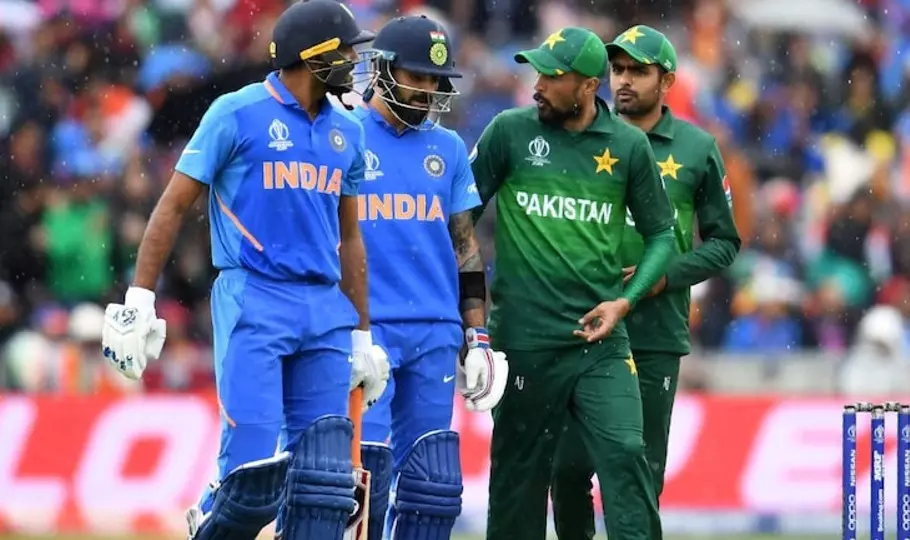
- Home
- India
- World
- Premium
- THE FEDERAL SPECIAL
- Analysis
- States
- Perspective
- Videos
- Sports
- Education
- Entertainment
- Elections
- Features
- Health
- Business
- Series
- In memoriam: Sheikh Mujibur Rahman
- Bishnoi's Men
- NEET TANGLE
- Economy Series
- Earth Day
- Kashmir’s Frozen Turbulence
- India@75
- The legend of Ramjanmabhoomi
- Liberalisation@30
- How to tame a dragon
- Celebrating biodiversity
- Farm Matters
- 50 days of solitude
- Bringing Migrants Home
- Budget 2020
- Jharkhand Votes
- The Federal Investigates
- The Federal Impact
- Vanishing Sand
- Gandhi @ 150
- Andhra Today
- Field report
- Operation Gulmarg
- Pandemic @1 Mn in India
- The Federal Year-End
- The Zero Year
- Science
- Brand studio
- Newsletter
- Elections 2024
- Events
- Home
- IndiaIndia
- World
- Analysis
- StatesStates
- PerspectivePerspective
- VideosVideos
- Sports
- Education
- Entertainment
- ElectionsElections
- Features
- Health
- BusinessBusiness
- Premium
- Loading...
Premium - Events

The call for avoiding Pakistan will give it an opportunity to slam India on global forums and hurt New Delhi's ambition to host mega events such as Olympics
As India and Pakistan get set to play their high-stakes group match in the 2025 Asia Cup on Sunday (September 14), a high-voltage storm has erupted on social media. The prime demand is to boycott the pivotal clash between the two arch-rivals. Ever since the tournament's schedule was announced, an intense debate has been raging over whether India should have agreed to face Pakistan after the Pahalgam terror attack in April, where 26 tourists lost their lives.
In the wake of the horrific tragedy and India’s subsequent Operation Sindoor, calls to boycott cricket games against Pakistan in the Asia Cup resonate with the nation’s raw grief and anger. While the emotional impulse is understandable, channeling it into a sporting boycott seems a flawed strategy. Instead, it appears a hollow and self-defeating gesture that may damage India's long-term sporting ambitions more than it would punish its intended target.
Also read: India vs Pakistan Asia Cup: Boycott calls from Opposition, Pahalgam victims’ kin
Call for boycott not logical
For many in the political fraternity and most social media warriors, the “Boycott Pakistan in Cricket” stand feels patriotic — a way to punish Pakistan for its complicity in cross-border terrorism. On closer examination, however, it’s neither logical nor consistent, nor in India’s long-term interest as a sporting nation. As public anger runs deep, cricket, given its emotional hold, becomes the easiest arena to demand retaliation.
History is replete with examples of sporting boycotts that have proven to be little more than symbolic gestures and ended up punishing only the athletes and the spirit of the game rather than the targeted nations.
Refusing to play Pakistan will not inflict any meaningful damage on its cricketing establishment. If anything, it saves the team from playing its toughest competitor. India-Pakistan fixtures are among the most-watched events in world cricket. Their absence diminishes tournaments but does little to constrain Pakistan.
Also read: Why India keeps winning against Pakistan, explains Rashid Latif
Boycotting Pakistan doesn't give it a strategic blow
Financially, too, broadcasters and sponsors crave the India-Pakistan rivalry, and without it, tournaments like the Asia Cup risk losing relevance. India’s absence may dent the competition's glamour, but it does not deliver a strategic blow to Pakistan.
The true cost would be borne by India’s players, who lose valuable high-pressure match practice and by the sport itself, which thrives on such contests. For a team preparing for major International Cricket Council (ICC) tournaments, depriving itself of these experiences in the name of “national pride” is akin to shooting oneself in the foot. Symbolism, in this case, substitutes for strategy.
History is replete with examples of sporting boycotts that have proven to be little more than symbolic gestures and ended up punishing only the athletes and the spirit of the game rather than the targeted nations. In a multilateral tournament like the Asia Cup, an Indian withdrawal would be a forfeiture that cedes points and potentially a championship to a rival.
Also read: India vs Pakistan: SC refuses urgent listing of plea, says 'match should go on'
It would be a victory for Pakistan without a ball being bowled, a scenario that may also be spun as a sign of Indian weakness, not strength. A boycott amounts to a symbolic self-goal, punishes Indian players and hands Pakistan an unearned triumph on an international stage. Instead of punishment, the boycott may achieve precisely the opposite of its intended effect.
Boycott calls reek of double standards
Boycott calls also reek of hypocrisy and double standards. We trade indirectly with Pakistan, our leaders meet at global summits, our businessmen are still engaged across borders, but playing cricket alone is treated as betrayal.
As the easiest symbolic target, we demand severing ties on the cricketing front. If the principle is that there should be no engagement with a country accused of sponsoring terror, why not a blanket economic and diplomatic disengagement?
Also read: Asia Cup 2025: Cold response to India-Pakistan match, and there is a reason
If engagement with Pakistan is unacceptable, why limit it to cricket? Strangely, the 'Boycott Pakistan' brigade is focused only on cricket. If this logic is extended to all sports, are we suggesting that Neeraj Chopra should skip all athletic events where his chief rival, Arshad Nadeem from Pakistan, figures? Or that the Indian Hockey team should not play in global events if Pakistan participates?
It could hurt India's bigger sporting dreams
Most damagingly, the boycott move could sabotage India's dreams of becoming a sporting superpower. India has aspirations to expand its role ifn international federations, host Commonwealth and ICC tournaments, and even bid for the Olympics. These ambitions rest on credibility.
The International Olympic Committee (IOC) and other global sports federations are built on the principle of separating sport from politics. A nation that politicises its participation, makes emotionally driven decisions to disregard international commitments, is bound to be branded an unreliable partner.
Also read: Asia Cup squad: Shubman Gill returns as vice-captain, Jaiswal and Iyer miss out
Global sporting bodies, from the ICC to the IOC, expect host nations to guarantee neutrality and ensure the participation of all qualified teams. A boycott would signal to the world that India is willing to sacrifice the spirit of international competition for domestic political expediency, a reputation that could prove fatal for its Olympic ambitions and undermine its credibility as a future host.
If India gains a reputation for politicising sport or refusing to honour commitments, it risks undermining its own bid to host the 2036 Olympic Games.
Also read: Opposition slams India-Pak clash in Asia Cup: ‘Stop profit over blood’
Despite these potential losses and threats, the chorus for boycotting Pakistan at the Asia Cup is loud, emotional, and cloaked in patriotism on social media.
If engagement with Pakistan is unacceptable, why limit it to cricket? If this logic is extended to all sports, are we suggesting that Neeraj Chopra should skip all athletic events where his chief rival, Arshad Nadeem from Pakistan, figures? Or that the Indian Hockey team should not play in global events if Pakistan participates?
The boycott brigade has targeted the Board of Control for Cricket in India (BCCI), and cricketers and blames the greed for big bucks as the root cause for India playing Pakistan. Just days before the big match, a PIL was filed in the Supreme Court, demanding cancellation of the high-profile India-Pakistan contest in the Asia Cup.
Mercifully, the apex court refused to even hear the matter, saying it's just a match. But ‘Hashtag patriotism’ and calls for the Great Cricket Boycott persist on social media. Not surprisingly, hashtags such as #BoycottAsiaCup, #NoCricketWithTerror and #BoycottINDvPAK continue as top trends on X (formerly Twitter).
Also read: India vs Pakistan, Asia Cup: Opposition parties slam BJP, dub BCCI 'anti-national'
Despite the Supreme Court's go-ahead, the script on social media is familiar: Twitter floods with hashtags, WhatsApp forwards declare “No cricket with terror sponsors,” and television debates thunder about national honour.
Govt stand on playing Pakistan has logic
In the bid to slam the BCCI and even our players, what’s conveniently forgotten is that the cricket fraternity is only following the policy laid out by the Government of India. The basic truth is that it’s the government that has decided that India will play with Pakistan in multi-national events — and that’s a policy not merely for cricket but for all sports.
Also read: Women’s Cricket World Cup 2025: Historic all-female panel of match officials named
Given India’s aim to host prestigious sports events, the government's decision has a definite logic to it — a boycott in multi-nation events would allow Pakistan to slam India on global forums. It could then argue that if India hosts the Olympics, Pakistan wouldn’t have a chance to participate — and that claim in turn could scuttle India’s bid to host the Olympics!
Mixing sports and politics only damages India’s athletes and ambitions. By playing Pakistan, our players become by no means lesser patriots than anyone. Rather, they are only fulfilling national commitments and need to be supported as they represent 1.4 billion of us!
The pain of terror is real, but cricket should not be made its scapegoat. True patriotism lies not in denying Pakistan cricket but in defeating them convincingly on the field. India’s strength lies in separating sport from statecraft and not in walking away from it. While boycott calls may win likes/retweets on social media, the real strength is not in logging off a match but in showing up and winning it. Preferably in style!
(The Federal seeks to present views and opinions from all sides of the spectrum. The information, ideas or opinions in the articles are of the author and do not necessarily the views of The Federal)


